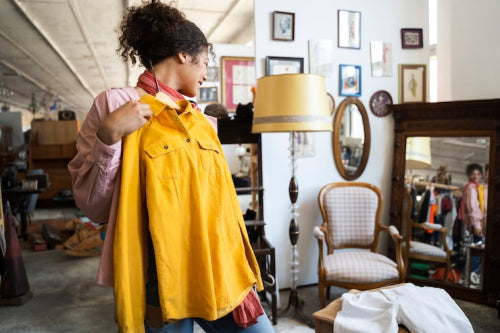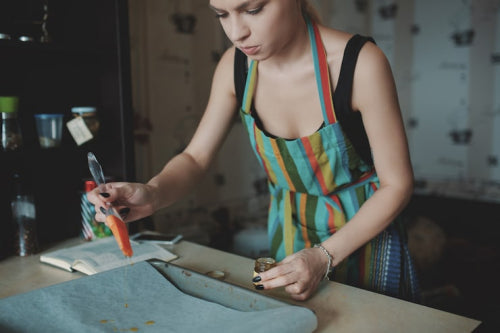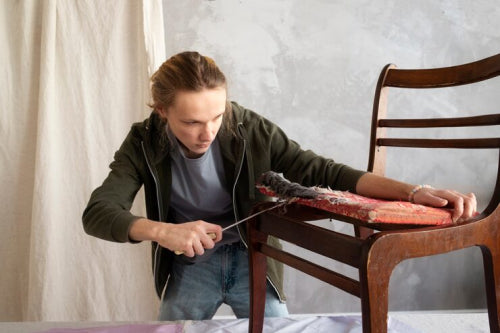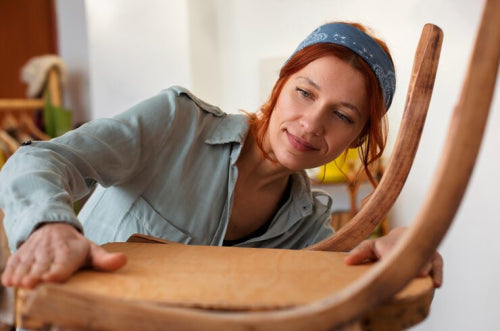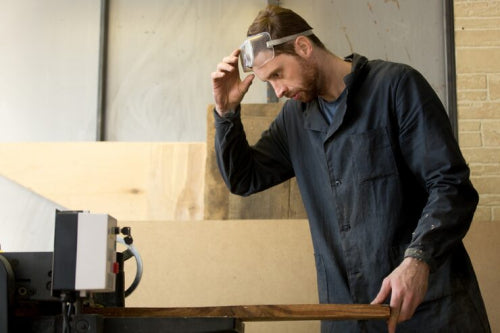In an era dominated by fleeting trends and disposable goods, a quiet revolution is unfolding in workshops like MMC Wood Creations in upstate New York. Here, artisans craft furniture designed not just for a season but for generations, challenging the throwaway culture of fast furniture. The scent of freshly cut walnut and the hum of hand tools fill their Hudson Valley studio, where each piece be it a sturdy oak table or a cherrywood chair carries a promise of permanence. This resurgence of heirloom-quality craftsmanship reflects a growing hunger for sustainability, authenticity, and meaning in our living spaces, a movement gaining traction as consumers reject the ephemeral for the enduring.
Mass-market furniture lacks heart, filling rooms with bland, short-lived pieces. Frequent breakdowns spark frustration, as replacements erode style and sentiment. At MMC Wood Creations, Udaipur artisans shape heirloom furniture with enduring craftsmanship and cozy elegance, creating pieces that echo your identity, ensuring your home radiates warmth and timeless connection. Shop Now!
The Rise and Cost of Fast Furniture
Fast furniture, much like its fashion counterpart, thrives on affordability and immediacy. In 2024, the global furniture market reached a staggering $739.4 billion, with mass-produced pieces from giants like IKEA and Wayfair leading the charge. These companies excel at delivering stylish, budget-friendly designs tailored to transient lifestyles think first apartments or quick decor updates. Yet, this convenience has a hidden price. A 2022 EPA report revealed that Americans discarded 12.2 million tons of furniture, much of it non-recyclable due to materials like particleboard, often bonded with toxic formaldehyde-based glues.
The environmental impact is profound. Particleboard's short lifespan sometimes just a few years drives a cycle of relentless consumption, clogging landfills with waste that lingers for decades. But a shift is underway. Younger generations, particularly millennials and Gen Z, are turning toward furniture that lasts, seeking pieces that embody both craftsmanship and emotional resonance. This pivot signals a broader cultural rejection of disposability, favoring items that tell a story and withstand the test of time.
Crafting Heirlooms with Purpose
At MMC Wood Creations, every piece is a labor of love, born from sustainable hardwoods like oak and cherry sourced from Forest Stewardship Council-certified local forests. The workshop's bespoke approach ensures each item whether a dining table carved with a family crest or a bookshelf tailored for a cherished collection reflects its owner's unique narrative. This stands in sharp contrast to the uniformity of mass-produced furniture, offering a deeply personal alternative that resonates with today's discerning buyers.
The numbers back this trend. According to the American Craft Council, demand for custom furniture surged by 18% among younger consumers in 2023, driven by a desire for sustainability and individuality. “Clients want pieces that feel like theirs alone,” an MMC artisan explains, smoothing a walnut credenza to a silken finish. “They're done with generic designs that could belong in any home.” This sentiment aligns with a broader movement toward intentional consumption, where quality trumps quantity, and durability is a form of defiance.
The Emotional and Economic Value of Heirlooms
Heirloom furniture's appeal transcends aesthetics it's about legacy. A 2023 National Woodworking Association survey found that 64% of respondents prized furniture with “emotional durability,” pieces that carry memories across generations. In an age of uncertainty, investing in something tangible feels like an anchor. MMC's creations, priced between $2,000 and $10,000, reflect this ethos. Crafting a single dining table can take 60 hours, from selecting the perfect wood to applying a hand-rubbed linseed oil finish. Compare that to a $200 flat-pack table that wobbles within a year, and the value proposition is clear.
The luxury furniture market, valued at $23.8 billion in 2020 and projected to reach $42.2 billion by 2031 with a 5.5% CAGR, underscores this shift. Consumers are increasingly willing to pay a premium for sustainable, long-lasting designs, with 72% factoring eco-consciousness into their purchases, as reported by Furniture Today. Wood remains the material of choice globally, prized for its durability and timeless appeal, while glass furniture gains traction in corporate and hospitality sectors. This growing market reflects a cultural pivot toward pieces that endure both physically and emotionally.
The Craftsmanship Conundrum
Despite its allure, heirloom craftsmanship faces significant challenges. The pool of skilled artisans is shrinking vocational woodworking programs have declined by 30% since 2000, per the U.S. Department of Education. MMC Wood Creations struggles to find apprentices willing to master the craft's intricacies. “It's not just about sawing wood,” a seasoned MMC craftsman notes. “It's about reading the grain, understanding its tension, and respecting its history. It's a relationship.” This scarcity of talent threatens the scalability of bespoke furniture, making each piece all the more precious.
Cost remains a hurdle too. Heirloom furniture's price tag can feel prohibitive, leading some to label the movement elitist. A handcrafted MMC table might cost thousands, while a mass-produced alternative is a fraction of the price. Yet artisans argue that fast furniture's low cost masks its true toll environmental harm, exploited labor, and a culture of waste. To bridge the gap, MMC offers smaller items, like $300 cutting boards or $800 side tables, making their craftsmanship more accessible without compromising quality.
A Cultural Renaissance
The heirloom revival is part of a larger cultural awakening. As digital screens dominate daily life, there's a palpable craving for tactile, enduring objects. A 2024 Etsy report noted a 25% surge in searches for “handmade furniture,” signaling a rejection of mass-produced monotony. Social media, particularly Instagram, amplifies this trend, with artisans like MMC showcasing mesmerizing videos of dovetail joints and hand-planed surfaces. These glimpses into the craft process transform woodworking into a form of storytelling, captivating audiences and humanizing the labor behind each piece.
MMC has embraced this digital stage, with their Instagram account boasting 45,000 followers. Posts highlight client's stories families inheriting tables from grandparents or commissioning pieces for newborns reinforcing furniture's role as a vessel for memory. The luxury furniture market's growth, projected to increase by $9.54 billion from 2024 to 2028 at a 5.16% CAGR, is fueled in part by this visibility, with new showroom launches and eco-friendly designs driving demand. This intersection of tradition and technology is redefining how we value craftsmanship.
A Legacy That Lasts
In a world that often feels fleeting, heirloom furniture stands as a quiet rebellion against disposability. Each piece from MMC Wood Creations is a testament to intention crafted to outlast fads, to be repaired, cherished, and handed down. As fast furniture burdens landfills and budgets, choosing something built to endure feels like a radical act. These pieces are more than objects; they're stories etched in wood, carrying the weight of memory and the promise of permanence. In the grain of a handcrafted table lies a truth: some things are meant to last, and in their lasting, they remind us what truly matters.
Frequently Asked Questions
What is fast furniture and why is it harmful to the environment?
Fast furniture refers to mass-produced, affordable furniture designed for short-term use, similar to fast fashion. In 2022, Americans discarded 12.2 million tons of furniture, much of it made from non-recyclable particleboard bonded with toxic formaldehyde-based glues. These pieces often last only a few years, creating a cycle of consumption that clogs landfills with waste that lingers for decades, making fast furniture a significant environmental concern.
How much does heirloom-quality custom furniture typically cost?
Heirloom-quality furniture from artisan workshops typically ranges from $2,000 to $10,000 for larger pieces like dining tables, which can take 60 hours or more to craft by hand. However, many craftsmen offer more accessible entry points, such as cutting boards starting around $300 or side tables for $800. While the upfront cost is higher than mass-produced alternatives, these pieces are designed to last generations, making them a long-term investment in both quality and sustainability.
Why is demand for handmade heirloom furniture increasing among younger generations?
Millennials and Gen Z are driving an 18% surge in custom furniture demand, seeking pieces that offer sustainability, individuality, and emotional resonance. A 2023 survey found that 64% of consumers prize furniture with "emotional durability" pieces that carry memories across generations while 72% factor eco-consciousness into their purchases. This cultural shift reflects a rejection of disposable mass-produced items in favor of meaningful, lasting pieces that tell a personal story and serve as tangible anchors in an increasingly digital world.
Disclaimer: The above helpful resources content contains personal opinions and experiences. The information provided is for general knowledge and does not constitute professional advice.
You may also be interested in: How Furniture Design Reflects Cultural Identity
Mass-market furniture lacks heart, filling rooms with bland, short-lived pieces. Frequent breakdowns spark frustration, as replacements erode style and sentiment. At MMC Wood Creations, Udaipur artisans shape heirloom furniture with enduring craftsmanship and cozy elegance, creating pieces that echo your identity, ensuring your home radiates warmth and timeless connection. Shop Now!
Powered by flareAI.co
